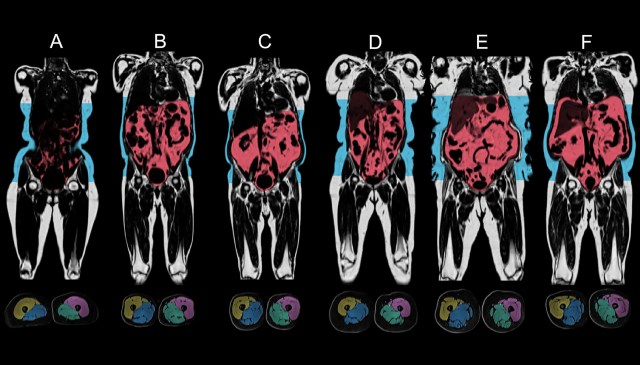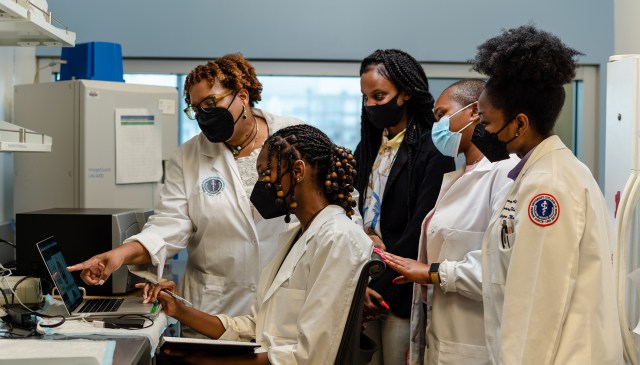Dec 4, 2018 · 9 min read
10 Community Organizations Receive $1M Each to Improve Economic Opportunity
With $10M in Funding From The Rockefeller Foundation and Chan Zuckerberg Initiative, Communities Thrive Challenge Grantees From Missoula, MT to San Juan, Puerto Rico, Will Expand Their Community-Led Approaches
Grantees Are Tackling Systemic Challenges Including Investing in Small Businesses in Low-Income Neighborhoods, Improving Access to Public Benefits, and Reducing Youth Incarceration and Recidivism
New York and The Bay Area – The Rockefeller Foundation and Chan Zuckerberg Initiative today announced the 10 grantees of the Communities Thrive Challenge — a $10-million effort to expand economic opportunity for low-income and financially insecure people and communities across the country. The 10 grantees — from nine states and Puerto Rico — are narrowing the opportunity gap by helping individuals and communities overcome complex systemic barriers to success. The grantees are: Benefits Data Trust of Philadelphia, PA.; BronxConnect of New York, NY; CASA of Langley Park, MD.; Coalfield Development Corporation of Wayne, WV; Fideicomiso de la Tierra del Caño Martín Peña of San Juan, PR; The Industrial Commons of Morganton, NC; MoFi of Missoula, MT; Onward Financial, Inc. of Kansas City, MO; Project QUEST, Inc. of San Antonio, TX; and South Carolina Community Loan Fund of Charleston, SC.
Each grantee of the Communities Thrive Challenge will receive $1 million to scale their solutions, as well as best-in-class technical assistance.
“The enthusiasm for the Communities Thrive Challenge was just off the charts from local organizations all across the United States, demonstrating a real hunger to share what’s working for the benefit of all Americans,” said Dr. Rajiv J. Shah, president of The Rockefeller Foundation. “By working together to invest in local solutions, we can build an America where all people can earn enough to support their families, achieve financial security, and provide their children with greater opportunity.”
“These organizations are creating pathways to opportunity from the ground up. We’ve already learned a lot from these local leaders and hope that others around the country will find useful lessons in these community-driven approaches,” said Priscilla Chan, co-Founder of the Chan Zuckerberg Initiative.
The 10 grantees listed below represent organizations from nine states and Puerto Rico implementing community-driven approaches to help create better work, provide skill development opportunities, improve financial security, and build economically vibrant communities.
- Benefits Data Trust (BDT) (Philadelphia, PA) – Millions of people are in need of food, healthcare, and housing but are not enrolled in programs that could help meet these needs. Each year, Benefits Data Trust helps tens of thousands of people receive critical supports using data, targeted outreach, policy change, and new technologies. Since its inception, BDT has submitted over 800,000 applications and secured over $7 billion in benefits and services that help individuals and families reach financial stability.
- BronxConnect (New York, NY) – BronxConnect, a division of Urban Youth Alliance, is a faith and community-based program that offers violence prevention methods and alternatives to detention and incarceration. BronxConnect utilizes asset-based mentoring to connect court-involved and high-risk youth and young adults with positive local community resources. Youth who participated in BronxConnect’s Alternative-to-Incarceration (ATI) program had a one-year recidivism rate of only 17%, compared to 76% for youth incarcerated in New York City. In addition, 57% of graduates have secured employment and/or internships despite their records and despite living in some of the highest-poverty neighborhoods in the country.=
- CASA (Mid-Atlantic Region) – CASA is a group of passionate, community-conscious people working to organize, advocate for, and expand opportunities for immigrant and working-class people across the mid-Atlantic region. CASA does this by providing employment placement; workforce development and training; health education; citizenship and legal services; and financial, language, and literacy training. By combining these strategies with community organizing, advocacy, and civic engagement CASA is improving the quality of life and building power in immigrant and working-class communities in the region. Since 1985, CASA has worked tirelessly to bring immigrant communities out of the shadows and into greater power, dignity, and legitimacy.
- Coalfield Development Corporation (Wayne, WV) – Coalfield Development Corporation takes an innovative approach to breaking the cycle of generational poverty in Appalachia. With their proven 33-6-3 model — which features 33 hours of paid labor, 6 hours of higher education class time, and 3 hours of life skills mentorship per week — Coalfield is helping to revitalize communities by providing job opportunities to unemployed and underemployed people. By offering positions in the industries of real estate development, solar energy, sustainable construction, mine-land reclamation, wood working, agriculture, and artisan trades, Coalfield is working to promote a diversified economy in counties where, for a considerable time, coal was a singular way to make a living.
- Fideicomiso de la Tierra del Caño Martín Peña (San Juan, Puerto Rico) – The Fideicomiso de la Tierra del Caño Martín Peña is an innovative and grassroots-led community land trust designed by residents of historically disenfranchised and underserved informal settlements at the heart of San Juan, Puerto Rico, to secure land rights and prevent displacement and gentrification as an unintended consequence of an environmental restoration project that will transform the city. Working with the community-based G-8 and ENLACE, and through strong organizing and partnerships, it has kick-started local businesses, engaged youth, and helped relocate over 700 families into safe housing, mostly within the neighborhoods, to allow for suitable infrastructure development.
- The Industrial Commons (Morganton, NC) – The Industrial Commons provides resources and support to firms, networks, and workers in industrial western North Carolina. It aims to improve livelihoods and root wealth in communities. The Industrial Commons operates several interconnected social enterprises to ensure that industrial businesses are revitalized and sustainable, work is rooted and meaningful, and workers live good, dignified lives.
- MoFi (Missoula, MT) – MoFi is changing what lending can do for people and their businesses. Fueled by their nonprofit mission to provide borrowers with flexible capital and superior business assistance, MoFi — a community development financial institution (CDFI) — provides financing and consulting to entrepreneurs and small business owners across the Northern Rockies, as well as affordable housing solutions. MoFi’s clients include low-income people, people in rural and low-income communities, women, minorities, and other populations left out of the financial mainstream.
- Onward Financial, Inc. (Kansas City, MO) – According to the Federal Reserve, nearly 47% of Americans could not come up with $400 in case of an emergency. Onward Financial seeks to change that by helping low-to-moderate income workers save, build financial literacy, and access responsible credit. Onward offers a mobile app and accompanying website that allows individuals to set a financial goal and start saving immediately from their paycheck into a savings account. While employees save, Onward sends financial tips, tools and resources directly to their mobile devices to create a feeling of confidence around managing finances. If employees have been active Onward savers for at least three months, they become eligible to access a responsible loan as an alternative to a payday loan or advance.
- Project QUEST, Inc. (San Antonio, TX) – Project QUEST is a workforce intermediary with a 26-year history of helping people living and working in San Antonio attain professional, high-paying jobs and in-demand occupations. Project QUEST works with people with the most barriers to higher education, helping them attain college admission, graduation, and job placement within a few months of their graduation. Since 1992, more than 7,000 participants have benefitted from Project QUEST’s mix of career mapping, personal and academic counseling, and financial assistance for education, with an 85% completion rate.
- South Carolina Community Loan Fund (Charleston, SC) – South Carolina Community Loan Fund (SCCLF) provides loans and technical assistance to organizations that seek to strengthen the social and economic fabric of underserved communities throughout South Carolina (SC). With a mission to provide equitable access to capital, SCCLF finances projects that provide affordable housing, increase access to food and essential services, attract businesses, employ community members, and stimulate economic activity. Since 2004, SCCLF has financed more than $49 million in loans throughout South Carolina, resulting in the completion of more than $330 million in community development projects.
Since its launch, the Communities Thrive Challenge received an incredible 1,826 applications that spanned all 50 states, D.C., and 4 of 5 U.S. territories. To ensure that community leaders had a voice in the decision making, applications were reviewed and scored by five other applicants in a peer review process.
Following the peer review process, over 80 applications were chosen for evaluation by a diverse panel of experts from academia, policy, business, philanthropy, and community development. Informed by expert and peer review, 20 finalists were selected for the final round. After extensive interviews, site-visits and reviews, the 10 grantees were chosen.
Applications were evaluated based on four main criteria:
- Impact: Does the approach improve the lives of the communities where it works?
- Potential for scale: Could this approach be effective at a larger scale or become a model for others
- Community based/informed: How deep is the organization embedded within the community it serves
- Leadership: Is the organization led by individuals with a strong history in, and commitment to, their field and do they represent the communities served?
For the final round, teams from The Rockefeller Foundation and the Chan Zuckerberg Initiative visited each of the 20 finalists in their communities to learn more about their work and visions for the future. The Rockefeller Foundation and the Chan Zuckerberg Initiative then selected the final slate of grantees who will each receive a $1 million grant and technical assistance tailored to their needs.
The Rockefeller Foundation and the Chan Zuckerberg Initiative have also released a public, searchable database of eligible applicants so that other funders, policy makers and leaders can learn from these standout approaches.
To view videos of each of the 10 grantees, please click here.
###
About The Rockefeller Foundation:
For more than 100 years, The Rockefeller Foundation’s mission has been to promote the well-being of humanity throughout the world. Today the Foundation is focused on securing the fundamentals of human well-being—health, food, power, and jobs—to ensure every family experiences dignity and opportunity in our rapidly urbanizing world. Together with partners and grantees, The Rockefeller Foundation strives to catalyze and scale transformative innovations, create unlikely partnerships that span sectors, and take risks others cannot—or will not. For more information, please visit www.rockefellerfoundation.org.
About the Chan Zuckerberg Initiative:
Founded by Dr. Priscilla Chan and Mark Zuckerberg in 2015, the Chan Zuckerberg Initiative (CZI) is a new kind of philanthropy that’s leveraging technology to help solve some of the world’s toughest challenges – from eradicating disease, to improving education, to reforming the criminal justice system. Across three core Initiative focus areas of Science, Education and Justice & Opportunity, we’re pairing engineering with grant-making, impact investing, policy and advocacy work to help build an inclusive, just and healthy future for everyone. For more information, please visit chanzuckerberg.com.





